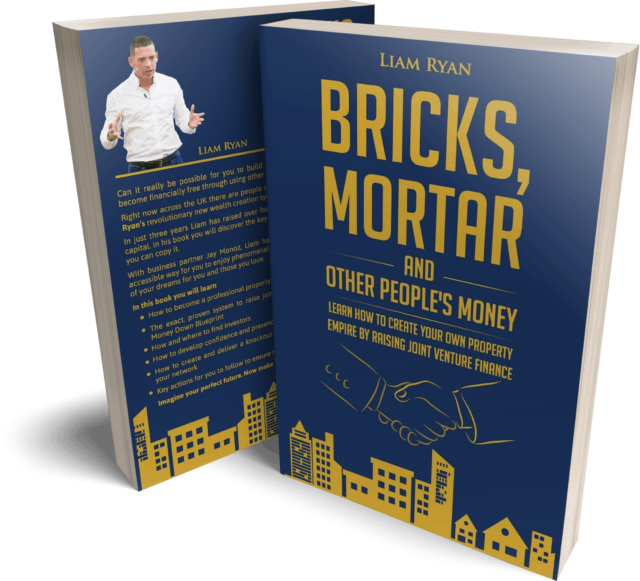Is Gazumping legal in UK in 2025? - 8 Ways investors can avoid being Gazumped

Gazumping is a term often used in real estate, and not one you’d forget in a hurry, but what actually is gazumping? Is it something that potential property investors should avoid? In this blog, I go into detail about all the ins and outs of gazumping and how you can avoid it.
Table of Contents
ToggleWhat is Gazumping?
Gazumping is when the seller of a property accepts a verbal offer from a buyer, but then before contracts have been exchanged, pulls out of the sale to accept a higher offer on the property. As you can imagine, this is very frustrating for the buyer, who may have already put time and money into getting a mortgage approved or arranging for a survey on the property. Gazumping is more common in areas where there is more demand for properties than there are available, and several buyers are competing for the same property.
There are similar terms derived from gazumping that may come up, such as gazundering, where a buyer lowers their offer price right before contracts are due to be signed, thus threatening the sale unless their new, lower offer is accepted. There is also gazanging, where the seller pulls out of a sale entirely, hoping they will get a better offer.
Is Gazumping Legal in the UK?
Yes, in England and Wales, gazumping is legal, although frowned upon as a slightly underhanded practice. No contract to purchase property or land is binding in the UK unless it is in writing and signed by both parties, so until this happens, sellers are technically able to accept any offer that comes their way. This is why you often see properties for sale labelled ‘under offer’ or ‘sold subject to contract’ as it means they could still be sold to another buyer.
In Scotland, gazumping is rare due to the Scottish conveyancing system. In the Scottish system, buyers often make an offer ‘subject to survey’ and the agreement becomes binding once the seller’s solicitor has delivered a signed written acceptance of the buyer’s offer. The seller’s solicitor will refuse to act on their behalf in any sale where gazumping has occurred, as it violates their code of practice.
How Gazumping Affects Investors?
Gazumping is surprisingly common, with 31% of buyers reporting in a 2022 survey by MFS that they have experienced gazumping and lost out on a property purchase. Gazumping can be a big problem for property investors, as you may have already shelled out the money for a solicitor or survey on the property. Gazumping can delay your investment plans and waste valuable time that could have been spent pursuing other investment opportunities. Gazumping also causes more instability and risk to the property investment process and the real estate market as a whole, meaning it could be more difficult to reach your financial goals.
What Should I Do if I Get Gazumped?
It can be incredibly frustrating and disheartening to find out you have been gazumped, but there are some things you can do to try and secure the property. You could get in touch with the seller and convince them that they should accept your offer. If you are a cash buyer, are not in a chain, can be flexible on moving dates, etc. these could all count in your favour and persuade the seller to accept your offer.
Consider your offer carefully – should you increase it? Generally, this should be avoided, as it can quickly get out of hand and you could end up in a gazumping war where the other potential buyer increases their offer in response to you doing the same. You could consider a counteroffer if your finances allow, but be logical and don’t allow yourself to be pressured into making a higher offer than you are comfortable with.
It is often best in a gazumping situation to simply cut your losses and walk away. Your time can be better spent looking for more investment opportunities that better suit your needs.
8 Strategies to Avoid Getting Gazumped:
You can reduce your chances of being gazumped if you take these 8 steps when looking for properties and making offers:
- Before you even make an offer, present yourself in a way that appeals to the seller. Let them know that you are ready to move quickly if your offer is accepted. Get to know them personally if you can and make a good impression. Solicitors and estate agents often discourage contacting the seller directly, but there’s nothing to stop you from sending them an email, or chatting with them if they are present when you view the property.
- Consider securing finance early on so that you have a mortgage in principle ready to go if your offer is accepted. If you are a cash buyer, make sure the seller is aware of this as it makes you a much more attractive prospect as a buyer.
- Instruct your solicitor and surveyor to expedite the process once your offer gets accepted, and make sure they have all the required documentation including your ID and proof of income so they can move quickly without any delays.
- Make a strong offer. Consider how much the property is worth, bearing in mind the condition, location and similar property prices in the area, and make a fair, sensible offer that is tempting for the seller.
- Communicate with your solicitor, surveyor and mortgage broker frequently and make sure you respond to any requests quickly.
- Once your offer has been accepted, ask the seller or the estate agent to take the property off the market. They aren’t legally obliged to do this, but many will do so if asked.
- Take out Homebuyer’s Insurance. This will not stop you from getting gazumped, but it will cover any expenses you incur as a result of gazumping, such as legal fees, surveys and other costs.
- Ask for a lock-out agreement. This is a contract that gives you the exclusive right to buy the property within a pre-agreed period. It prevents the seller from negotiating with other potential buyers during the lock-out period and often requires a deposit to be made towards the property. Of course, you will lose the deposit if you are the one who ends up pulling out of the sale, but if the seller backs out, they will have to pay you a pre-agreed amount as compensation.
Are you interested in property investment? Check out one of our FREE property events to get valuable knowledge and industry insights from me, Liam J Ryan, plus other property investment experts – click here to find out more.
You May Also Be Interested In...

A Guide to Selling Your Buy-To-Let Property
Thinking of selling your buy-to-let? Learn how to time the market, manage tax and maximise

Planning Permission Loopholes You Should Know About
Discover UK planning permission loopholes, permitted development rights and when you can extend, convert or
Featured Property Investment Events & Courses
The Property Deal Packaging Summit
The Property Millionaire Bootcamp
The Serviced Accommodation Bootcamp






